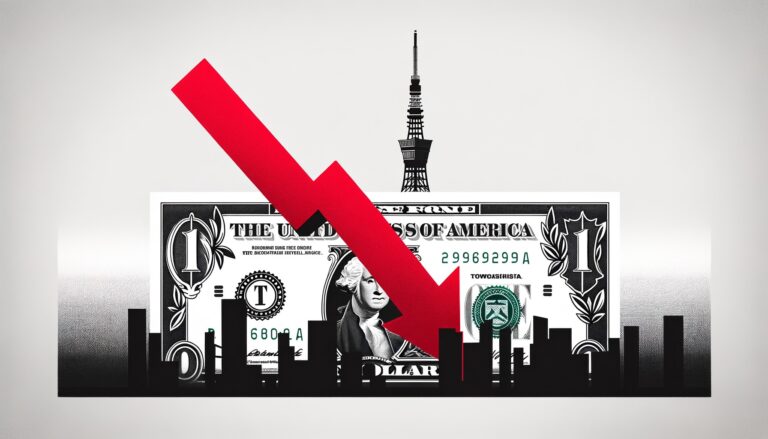What’s going on here?
Global investors poured $98.58 billion into money market funds in the week leading to August 7 – the largest weekly net purchase since April. This surge is driven by fears of a US slowdown and a strengthening yen causing carry trade unwinds.
What does this mean?
Fears of a US recession are rising, stoked by weaker-than-expected payrolls and a significant drop in July’s manufacturing data. Seeking safe havens, investors have dramatically boosted money market fund inflows. Over in Japan, the Nikkei share average plunged 12.4% on Monday – its largest single-day fall since ‘Black Monday’ in October 1987. This has rattled global markets further, leading to a $6.33 billion outflow from global equity funds and snapping a seven-week streak of inflows.
Why should I care?
For markets: A flight to safety.
US equity funds saw net outflows of $7.39 billion after a period of net purchases, signalling growing caution among investors. European funds also experienced outflows of $4.54 billion, while Asian funds saw a modest inflow of $4.61 billion. The technology and financial sectors suffered significant outflows, while the utilities sector experienced its sixth consecutive week of inflows. This shift in investment patterns highlights the increasing preference for safer assets amid economic uncertainty.
The bigger picture: Gearing up for turbulence.
Investment flows reflect broader economic concerns, with global bond funds marking their 33rd consecutive week of inflows, pulling in $6.26 billion. Corporate bond funds also saw net purchases for the 10th consecutive week, indicating a robust appetite for fixed-income assets. Meanwhile, emerging market equity funds recorded a net outflow of $2.79 billion, continuing a nine-week trend of net selling. These movements underscore the shifting sentiment as investors brace for potential economic turbulence.

